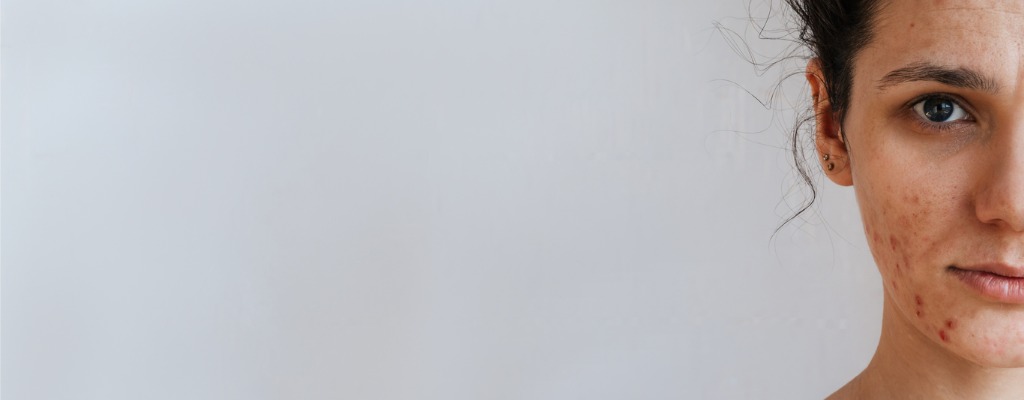Breaking the stigma: Understanding and treating adult acne
Everyone begrudgingly expected to cope with acne in high school. No one told us it would be the uninvited guest at class reunions.
Acne is not exclusively a problem for teenagers.
While many teens experience acne, two-thirds of patients seeking treatment for the disorder are adults. If you find yourself picking up pimple prescriptions and your kids from preschool in the same trip, you're not alone. Approximately 3 million adults are being treated for acne by a physician.
What causes adult acne?
First, let's address the basics of acne. Acne is generally a result of bacteria, inflammation, excess oil production, and pores becoming clogged by skin cells. The root causes of adult acne differ slightly from those causing acne in adolescents.
Adult acne is triggered by:
Stress
Stress is a common trigger for adult acne, disrupting hormones and weakening the immune system. Oil production and inflammation increase while the ability to fight off acne-causing bacteria diminishes, wreaking havoc on the skin.
Diet
Again, inflammation plays a key role in acne. Certain foods may produce an inflammatory response, leading to increased oil production, clogged pores, and, ultimately, acne. Foods that contain refined sugars or dairy are often associated with increasing inflammation. Additionally, diets high in carbohydrates and low in fiber can also contribute to acne flare-ups. In combination with treatments recommended by a board-certified dermatologist, paying close attention to your diet and making the right food choices for your body may help improve your skin health.
Hormones
Hormone fluctuations, such as those experienced during menstrual cycles, pregnancy, and menopause, can cause breakouts. Hormonal acne happens when fluctuations disrupt the delicate balance of oil production, cause inflammation, and slow skin cell turnover.
During menstrual cycles, the levels of estrogen and progesterone fluctuate, which can result in increased sebum production and inflammation, making the skin more prone to breakouts.
Pregnancy hormones, specifically the surge in progesterone, can also cause an increase in oil production and lead to acne flare-ups. When managing acne during pregnancy, it's critical to work with a board-certified dermatologist. Do not use any medications, prescription or over-the-counter, without first speaking to a physician.
Similarly, during menopause, hormonal shifts cause skin changes including adult-onset acne. An increase in relative androgen production is often to blame for these breakouts, sprouting chin hairs (hirsutism), and hair loss (androgenic alopecia).
Hair and beauty products
Many hair and beauty products contain ingredients that can clog pores and irritate the skin, leading to breakouts. Common culprits include oils, silicones, and fragrances. Choose products labeled non-comedogenic; they're unlikely to clog pores and contribute to acne flares.
Medications
⚠️ Do not stop any medicine without the guidance of your prescribing physician. ⚠️
Medications can also be a factor in causing acne in adults. Certain medications, like corticosteroids, anabolic steroids, and lithium, can trigger breakouts. If you suspect that your medication may be contributing to your acne, it's best to consult with a board-certified dermatologist who can help you find a solution that works for your specific needs.
Underlying health conditions
An underlying health condition can cause acne. It's often a symptom of polycystic ovary syndrome (PCOS), Cushing syndrome, liver disease, and pancreatic disease. If you experience a sudden onset of acne or increasingly severe breakouts, see a board-certified dermatologist as soon as possible.
Treating and Managing Adult Acne.
Most adult acne requires prescription medication to clear completely.
Commonly prescribed treatments include:
Retinoids
These gels, creams, and lotions combat acne by encouraging cell turnover. New cell growth is promoted while old, dead cells are broken down. By keeping skin free from debris, pores remain clear and pimple-free
Antibiotics
Prescribed in topical and oral forms, antibiotics like minocycline, doxycycline, erythromycin, and clindamycin kill excess skin bacteria, preventing redness and inflammation.
Topical acids
Azelaic acid reduces the number of keratin cells produced by the body. Keratin cells are responsible for clogging pores and sebaceous glands, leading to pimples. Not a one-trick pony, Azelaic acid has antibacterial properties, killing off microbes that feed on sebum. Salicylic acid is an exfoliating beta hydroxy acid (BHA) that keeps skin clear by dissolving pore-plugging dead skin cells.
Anti-androgen agents
Spironolactone (Aldactone) is used when the body produces too many androgen hormones, causing sebum overproduction. This medication blocks androgens from triggering sebaceous glands, reducing the amount of oil produced by the skin and cutting off the "food supply" for acne-causing bacteria.
Isotretinoin
Typically prescribed for moderate to severe acne that has not responded to other treatments, Isotretinoin is a vitamin A derivative. Like topical retinoids, this oral medication increases cell turnover and the breakdown of dead skin cells. It also inhibits sebum production by reducing the size and output of sebaceous glands by up to 90%.
Isotretinoin requires close physician management. Patients who could become pregnant must use two acceptable forms of birth control for one month before isotretinoin treatment, throughout treatment, and for one month following treatment. Additionally, patients must submit a negative pregnancy test each month to refill medication. All patients must participate in the iPLEDGE program.
These prescription medication regimens often include over-the-counter product recommendations to support treatment or adjunctive therapies. These recommendations are designed to promote healing and to help you get the most out of your treatment plan. For acne patients, they often include a cleanser, moisturizer, and SPF 30+ broad-spectrum sunscreen.
Lifestyle changes can proactively improve skin health. You can promote healing by:
-
Practicing Skin-Smart Sleep. Remove all makeup and ensure hair is kept off of the face before you go to bed.
-
Choosing makeup, skincare, and hair care products that are labeled non-comedogenic. Non-comedogenic products are designed not to clog pores or contribute to acne breakouts. Formulated with ingredients that are less likely to cause irritation or pore blockage, they are ideal for those with acne-prone skin.
-
Taking note of your breakouts with a skin diary. Record foods, products, situations, and time frames during which you break out. Journaling can help you and your dermatologist better understand your acne.
-
Protecting your skin with SPF 30+ and physical barriers like wide-brimmed hats. While skin cancer prevention is always necessary, shielding your face from harmful rays is critical when taking medications that increase light sensitivity. Sun protection helps prevent dark marks, called post-inflammatory hyperpigmentation or PIH, from forming in places where acne nodules have healed.
Have adult acne? You're not alone.
Two-thirds of acne patients are adults. With different root causes and a multitude of options, understanding who can help address your skin concerns, how to get the medical care you need, and what the next steps are can be challenging. Without treatment, adult acne will persist, infections become possible, and scarring or post-inflammatory hyperpigmentation could occur or worsen.
DermatologistOnCall offers a convenient and time-saving solution without sacrificing clinical quality. With just a few clicks, you can submit an online visit to a board-certified dermatologist. Within 48 hours, you'll receive a personalized treatment plan, and your dermatologist will send any necessary prescriptions to the pharmacy of your choice. Don't let acne hold you back; start your online visit with DermatologistOnCall today and take the first step towards clear, healthy skin.


